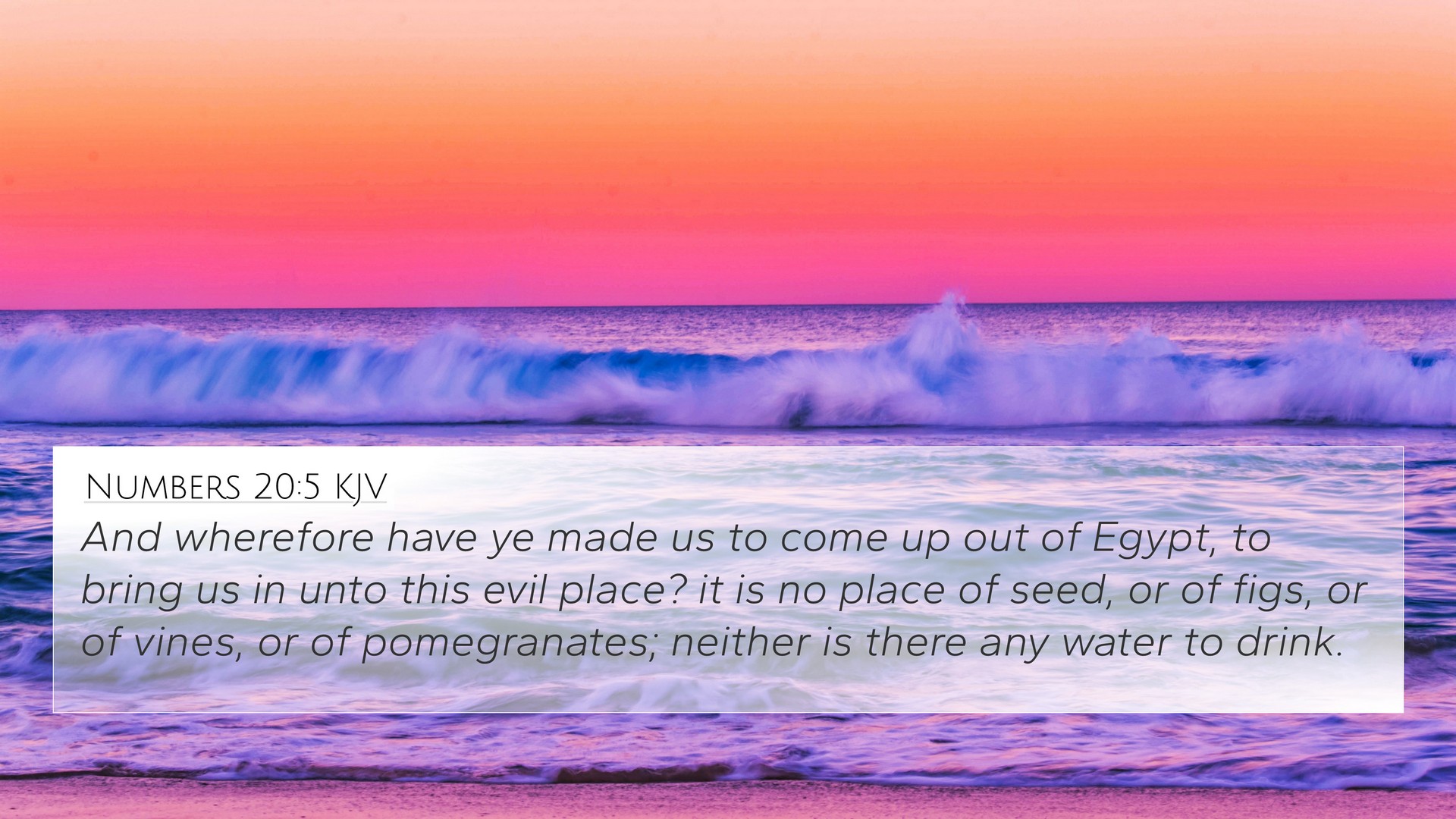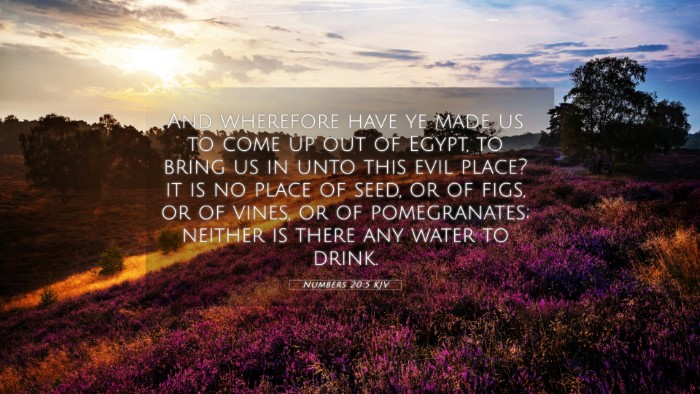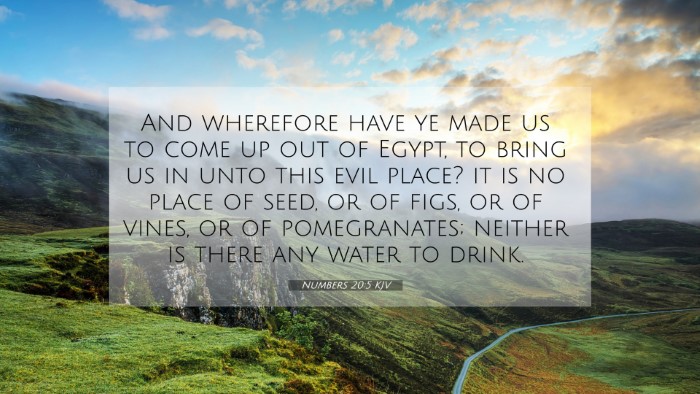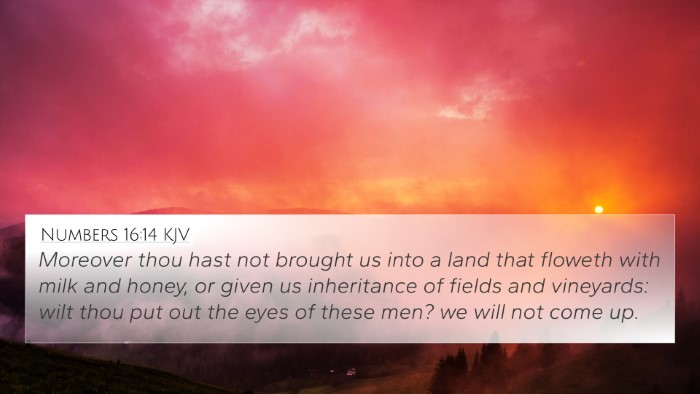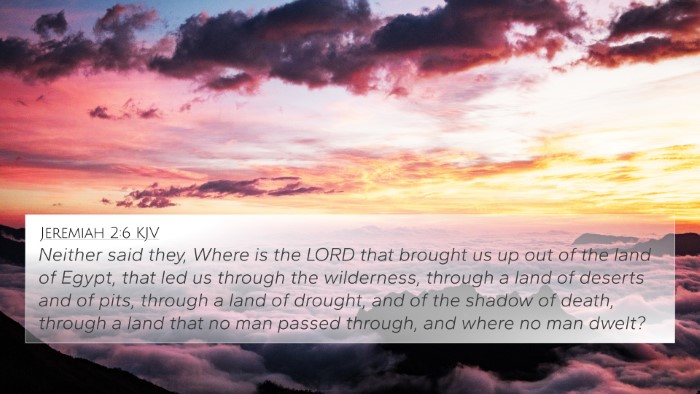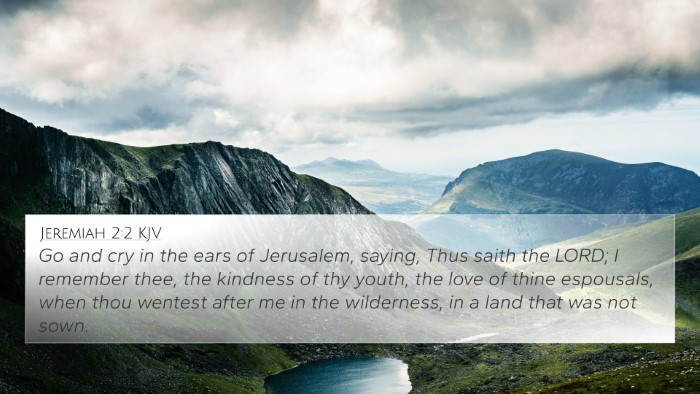Understanding Numbers 20:5
Numbers 20:5 states:
"And wherefore have ye made us to come up out of Egypt, to bring us in unto this evil place? It is no place of seed, or of figs, or of vines, or of pomegranates; neither is there any water to drink." (KJV)
Summary of the Verse Meaning
This verse captures a moment of frustration and despair expressed by the Israelites during their journey in the wilderness. When faced with the harshness of their surroundings, they lament their departure from Egypt, reflecting a profound lack of faith and an ingrained attachment to the comforts of their previous life despite the hardships that came with it.
Insights from Commentaries
-
Matthew Henry:
Henry emphasizes the Israelites' complaints as a significant example of ingratitude. They overlook the deliverance from slavery and focus on their immediate discomfort. This reflects a common human tendency to forget past mercies when confronted with new challenges.
-
Albert Barnes:
Barnes notes that the complaint arises from physical needs—the scarcity of food and water. It highlights their disbelief in God’s provision and promises. He indicates that the episode showcases the importance of trust in divine providence, even in desolate circumstances.
-
Adam Clarke:
Clarke points out that the Israelites question God's intentions, interpreting their plight as a test of faith. His commentary suggests that the verse illustrates the tension between human perception of hardship and divine planning. Clarke urges readers to seek understanding in trials rather than focusing solely on their immediate pain.
Cross-References for Numbers 20:5
This verse has several connections throughout the Bible that help provide deeper insight into its meaning:
- Exodus 16:2-3: The Israelites complaint about food in the wilderness.
- Numbers 11:5-6: Reminiscing about the food they had in Egypt highlights their dissatisfaction with manna.
- Psalm 78:19: Reflects on how the Israelites questioned God’s power and provision during their trials.
- Hebrews 3:19: Discusses the Israelites’ lack of faith that prevented them from entering the Promised Land.
- Isaiah 43:18-19: God’s promise of new beginnings despite past experiences.
- Philippians 2:14-15: Encouragement to do all things without grumbling, contrasting with Israel's complaints.
- 1 Corinthians 10:10: Paul warns against the behaviors of the Israelites, using them as an example of what not to do.
Thematic Connections
Numbers 20:5 reflects broader themes such as:
- Faith vs. Doubt: The Israelites' reliance on sensory evidence rather than on faith in God.
- God’s Provision: The conflict between God’s intended blessings and humanity's immediate perceptions of lack.
- Gratitude and Ingratitude: The challenge of maintaining gratitude in the face of adversity.
Applications and Reflections
In a contemporary context, this verse urges readers to reflect on their own lives:
- Trust in Hard Times: How can we cultivate a deeper trust in God during difficult seasons?
- Spiritual Awareness: Are we aware of the past provisions and blessings from God, or do we easily forget them?
- Complaint vs. Confidence: Shifting our focus from complaints to confident prayers can transform our perspectives.
Conclusion
The passage of Numbers 20:5 highlights a critical moment in the Israelites’ journey, serving as a profound lesson about faith, provision, and the human tendency to complain. Through cross-referencing, we are reminded that throughout scripture, the themes of trust in God amid trials and remembering His faithfulness stand firm.
When engaging in Bible verse cross-references and exploring comparative Bible verse analysis, we enhance our understanding of the interconnectedness of scripture and how each part contributes to the overarching narrative of God's relationship with His people.
